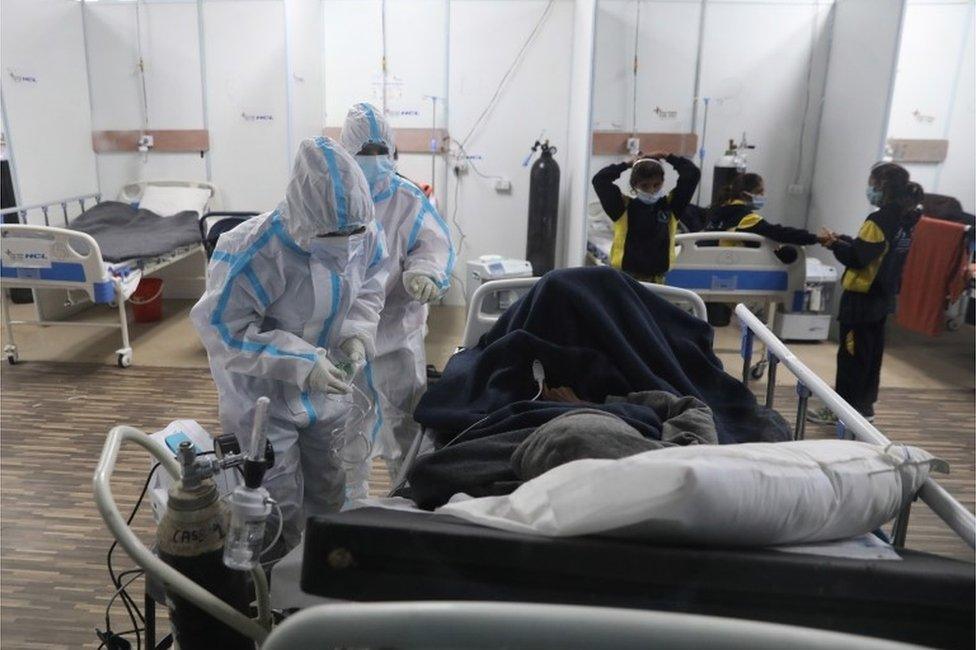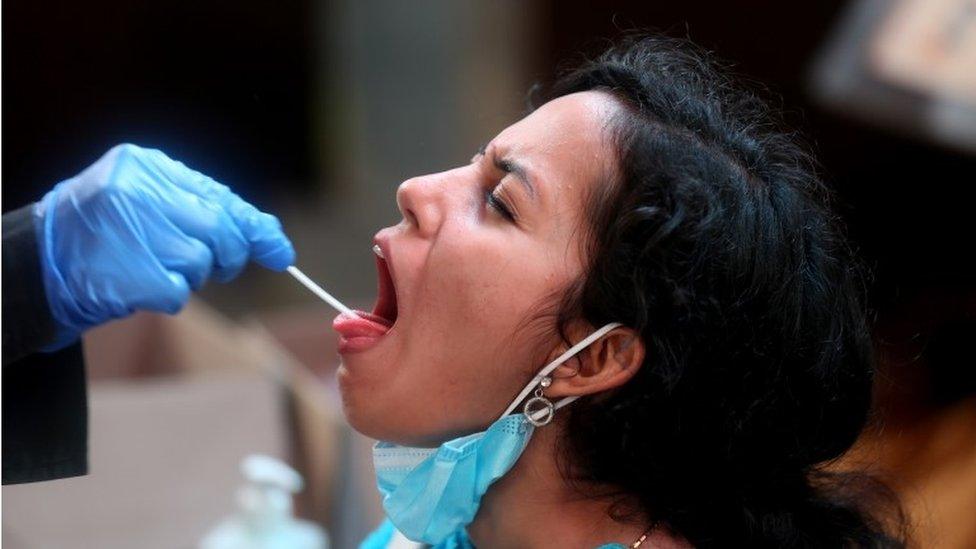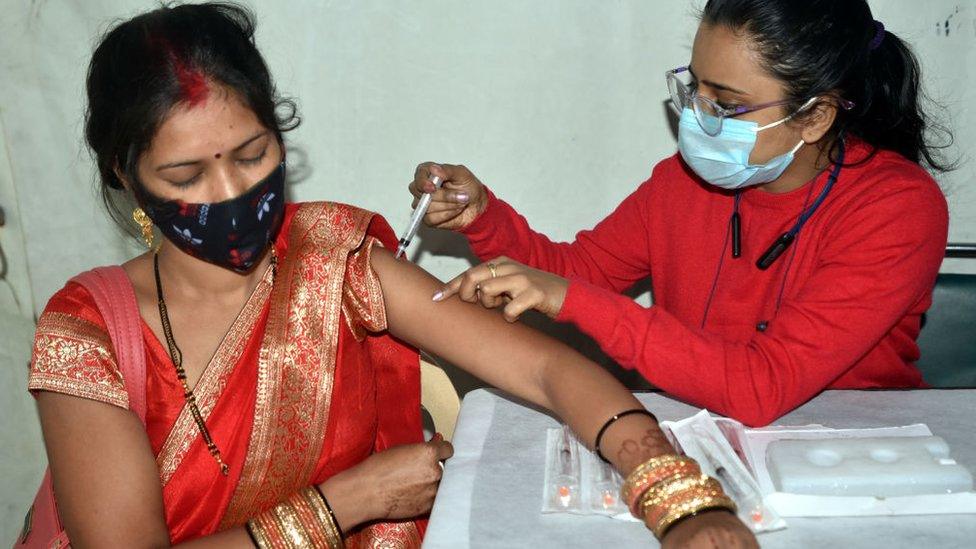Covid-19: India records first death linked to Omicron variant
- Published

Nearly a third of new daily infections have been reported from Delhi and Mumbai
A 74-year-old man who died in the western state of Rajasthan was India's first death with the Omicron variant, the health ministry said on Wednesday.
Officials said the man had been suffering from diabetes and other comorbid conditions.
India has reported 2,630 Omicron cases so far.
It reported more than 90,000 cases on Thursday - a nearly six-fold rise over the past week that experts say is fuelled by the Omicron variant.
India recorded 325 deaths in the 24 hours but only one has been linked to Omicron, officials said.
"Technically it is an Omicron-related death. He was an elderly person who had diabetes and comorbid conditions," Health Ministry Joint Secretary, Lav Agarwal said at the daily press briefing on Wednesday.
The Indian Express newspaper reported, external that the patient was admitted to a hospital in Udaipur city in Rajasthan state on 15 December and died 15 days later. Doctors said the man was fully vaccinated.
During Wednesday's briefing, Indian Council of Medical Research (ICMR) chief Balram Bhargava said that the Omicron variant is the "predominant circulating strain in cities and all mass gatherings must be avoided".
Mr Agarwal said the states of Maharashtra, West Bengal, Delhi, Kerala, Tamil Nadu, Karnataka, and Jharkhand are "some of the emerging states of concern", with a sharp increase in weekly cases and positivity rates.
India has so far recorded more than 35 million Covid cases and around 482,000 deaths from the virus.
A disastrous second wave in April and May 2021 saw infections and deaths climb as hospitals ran out of beds, oxygen and life-saving drugs.
Preliminary data suggests that those with Omicron are less likely to spend time in hospital in critical care compared to previous variants.
But experts and doctors fear that a surge could still derail healthcare services - especially as India is headed for multiple state elections, which are often accompanied by massive rallies.
Several states, including Delhi and Maharashtra, have reintroduced curbs and temporary curfews to limit gatherings and arrest the spread of the virus.

Inside a Delhi hospital, which ran low on beds and oxygen during the brutal second wave

Related topics
- Published5 January 2022

- Published12 December 2021
